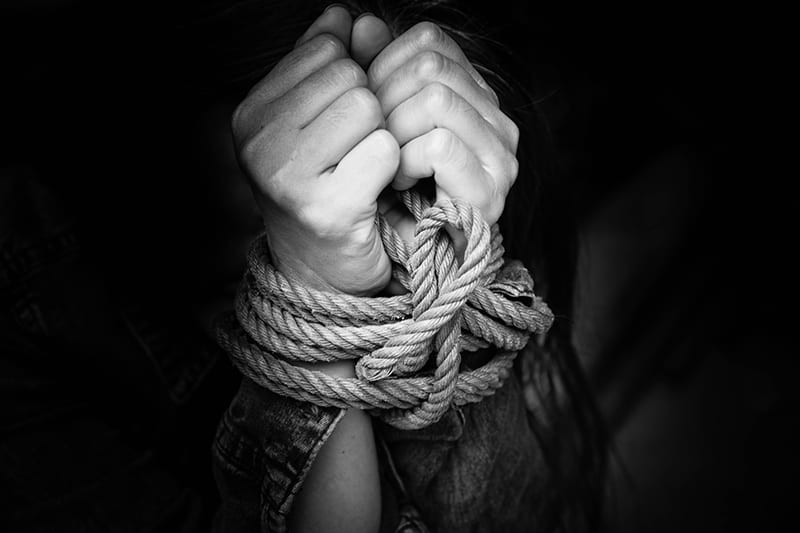Anabel Sanchez
Online Editor
You’ve probably heard about human trafficking in some form or other but just how much do you really know?
While it has become more ingrained in the general public’s consciousness in the social media era, human trafficking is far more complex than what is usually reported by mainstream media.
In a nutshell, human trafficking is the recruitment and movement of human beings who are exploited through force for money. An illegal business that goes back hundreds of years, the International Labour Office reports that human trafficking generates $150.2 billion in profits worldwide.
While there are various forms of human trafficking, some of the most predominant forms are forced labor, organ harvesting, debt bondage and sex trafficking. The people most prone to falling victim to trafficking are runaways, domestic abuse victims, homeless people and people with low financial means.
Young people, particularly underage girls and boys, are vulnerable to becoming victims of sex and labor trafficking. They are easier to subdue with drugs as well as easier to capture after school. And since they are preteens, they might be rebellious and more willing to meet with people online or in other situations.
In 2018 the National Center for Missing & Exploited Children received over 18.4 million reports related to the sexual exploitation of children.
In Broward County, there’s been a steady rise of reports on human trafficking with minors throughout the years, with 55 cases being reported in 2010 to now 217 reports clocking in in 2018. The age range for these reported minors peaks the highest at ages 12 to 16 years of age, with age 17 coming in second.
Lauderhill, Hollywood and Ft. Lauderdale rank as the biggest cities for teenagers to be caught by traffickers, whereas malls and group homes are targeted grounds.
There’s also startling statistics on race.
Out of the 217 minors reported in 2018 to have been trafficked in Broward, an overwhelming 140 of them were black. In comparison, only 57 of them were white, whereas 16 were indicated as race unknown and 4 marked as being of multiple races.
BC professor of sociology and human services program manager Dr. Robert Gallagher says that there is a reason for this.
“There’s a lot of poverty in Broward County,” he says. “Most of these kids who suffer from it are African-American and might have suffered some kind of trauma or drama in their life. They get drawn in by traffickers in a similar way domestic abuse victims do by their abuser.”
Dr. Gallagher also explained that typically its states that have ports or are known as “gateways” in the U.S. that tend to be key locations for trafficking people.
“Places with high tourism are hotspots for trafficking,” he affirmed. “There’s a constant flow of people going in and out, which is why Florida ranks high in human trafficking in the U.S.”
With the recent arrest of accused sex trafficker and convicted sex offender Jeffrey Epstein and the ongoing investigation into his dealings after his death, the issue of trafficking has been thrust onto the world stage in a major way.
Epstein’s associations with major celebrities and political figures, domestic and international, shines a spotlight on the reality that traffickers can be of any age, station or gender. It isn’t always some disturbed creep in a trench coat, following kids in a van.
It could very well be the smiling, schmoozing, well-connected rich guy who lives in a New York townhouse.
“And this is why I dislike the ‘stranger danger’ attitude,” Dr. Gallagher said to this. “The fact is that most traffickers or people associated with them will be family members, a friend or someone the victim knows or trusts.”
Ultimately, South Floridians need to be aware that human trafficking is going on in their own backyard. It isn’t just a faraway thing happening elsewhere. It’s happening here and now.
To find out more about human trafficking you can go to www.humantraffickingcenter.org or www.bhtc.us.
And if you suspect a human trafficking situation and wish to report it, you can call the National Human Trafficking Hotline at 1-888-3737-888, visit humantraffickinghotline.org, www.browardschools.com/Page/32906 or call the Florida Abuse Hotline at 1-800-96-ABUSE.
sancha9@mail.broward.edu
